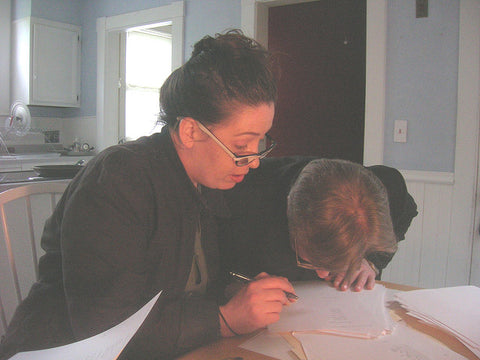Blog
5 Reasons You Didn’t Get an Interview and What to do About It
5 Reasons You Didn’t Get an Interview and What to do About It
Conducting a job search is time-consuming and can be very stressful, especially if you’re unemployed and need the income a job can provide. When you submit hundreds of resumes and don’t get selected for an interview it can be frustrating. Sometimes you’re passed over due to circumstances out of your control. Perhaps they’ve decided to go with an internal candidate or their hiring has been put on hold. But other times, you might get passed over for another reason. Maximize your time spent by avoiding the common (and uncommon) pitfalls of job searching. Highlighted below are 5 reasons why you might be passed up for an interview and what to do to prevent it the next time.
You Submitted a General Resume
It’s easy to fall into the time-saving trap of submitting the same resume over and over again for each job that interests you. But in the long run, it can hurt your chances of getting selected for an interview. Instead, take a few moments and compare your resume and the job description side by side. Are there different ways you could phrase the wording in your resume to more closely match the description? What about your experience? Is there a job that more closely aligns with the position that you don’t have currently listed? Spending as little as 5-10 minutes reviewing and editing your resume can make an enormous impact. Some companies use automated systems that screen resumes before they even make it to a recruiter or hiring manager. Tailoring your resume can increase your chances of making it past those screenings and into the hands of a real person.
You Didn’t Proofread
It might be as simple as a spelling error. Sometimes that’s all it takes for a hiring manager to move your resume into the trash pile. You want to put your best foot forward. To do that, read and re-read your resume before submitting it. When you think it’s perfect hand your resume over to a couple of friends or family members and have them read through it. You can order our Resume Proofreading Services to have our expert to help you with your resume.

You Wrote a Novel when they Wanted a Short Story
You might have heard that your resume should be confined to one page. While that’s not always true, don’t go beyond two pages unless specifically instructed. When recruiters receive a resume that is pages long, it can immediately turn them off. They’re busy and are sifting through a lot of resumes. They don’t want to spend more than a few minutes looking one over. Keep your resume to 1-2 pages by highlighting your most recent and relevant experience. If it’s old news, ditch it. If they want more information about your experience, you can elaborate during an interview.

You Didn’t Follow Instructions
Perhaps the hiring manager requested a cover letter or other application material in addition to your resume. Or, there might be a specific deadline for applications to be received. Whatever the instruction, not following it exactly can quickly get you eliminated. Failing to follow instructions sends a couple different messages to a hiring manager. Primarily, it tells them you didn’t carefully read through their application process which demonstrates carelessness and lack of attention to detail. If you willingly don’t follow instructions, be sure to include a reason why. This lets a hiring manager know that you did read through the instructions and are trying to explain why a portion was not followed.

Your Salary Expectations Were Too High (or Perceived that Way)
Sometimes a position has a salary cap. If you list salary expectations on your resume, it’s a good way to get passed over. If you set those expectations up front and it’s too much or at the top of the salary range, there’s goes your chance for an interview. At an interview, you have the opportunity to show a hiring manager what you’re worth through your skills and experience. Once meeting you and discussing your qualifications, they may be more willing to give you compensation at the top the range. Or, if the salary is still too low, now they’ve met you and can keep you in mind for other positions that might be a better fit for you within the company. Considering those points, wait until after a successful interview to discuss salary expectations and avoid listing those on your resume. That includes not listing previous salaries (unless requested). A few extra minutes to tweak your resume can make all the difference. Invest some time up front and avoid the mistakes listed above to ensure your job search doesn’t take longer than it needs to.

Loft Resume provides multiple writing services, do contact us if you need any help with your resume.
Author Bio
Rachel is a writer for the BuiltforTeams.com blog. She loves to offer tips and advice on everything from interviewing and resume building, to management and employee development. She also enjoys reading, cooking and creative writing.- Category Resume Content